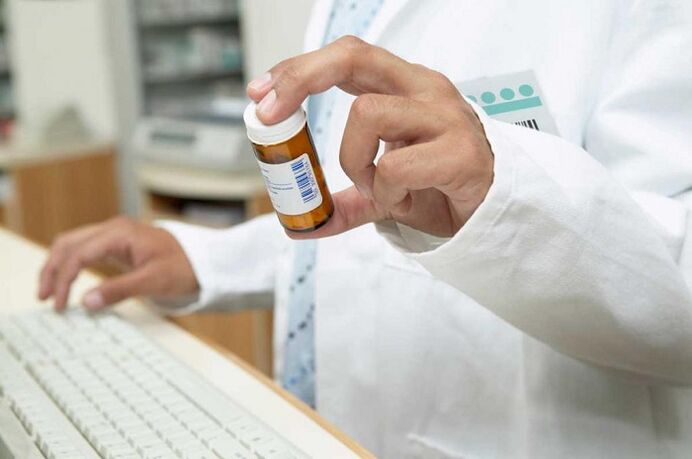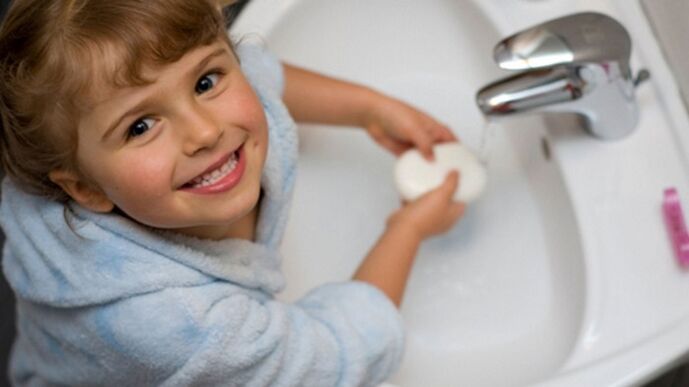Helminthiases are a group of parasitic diseases characterized by a high degree of infection. Helminth eggs are highly resistant, they can stay on different surfaces in the environment for long periods of time, while maintaining their vitality. It's sad that worm eggs surround us everywhere: in soil, water, soil, dust, on food and pet hair. However, it is quite easy to prevent infection, for this you only need to follow a few precautions: the rules of personal hygiene and general standards of hygiene. After all, worm prevention is the best way to protect yourself from a worm infestation.
How worms are transmitted?
You can become infected with worms in the following ways:
- when eating contaminated meat and fish;
- when eating unwashed vegetables and herbs, fruits and berries;
- through dirty hands;
- some water-dwelling parasites have the ability to penetrate the skin;
- through infected insects, which are intermediate hosts for larvae;
- through infected feces;
- through infected animals.
Worm prevention for adults
Prevention of worms in humans is not limited to compliance with the rules of personal hygiene, pharmacological preparations are also used for prophylactic purposes. Synthetic dewormers are prescribed only by a specialist, depending on the age, weight and general health of the patient. You should not self-medicate and self-medicate because parasites are of different types and they live not only in the intestines but also in other organs. Also, do not forget that with the wrong dose of medicine or uncontrolled intake, you can do a lot of harm to your body.
First, if the wrong dose is applied, the parasites do not die, but will move through the digestive tract to other organs.
Second, deworming drugs are very toxic, which can cause severe toxicity to the body and liver damage.
Third, most dewormers only affect adults, leaving their larvae and eggs unharmed.

Prevention of worms is a set of measures that are not limited to a pill or just rules of personal hygiene. It is just that in some cases it is enough to observe personal hygiene, while in others very little, they are supplemented with pharmacological agents. Only a doctor can determine in which cases the usual precautions are sufficient, and in which cases should be supplemented with pills.
Observe the rules of personal hygiene
However, everyone is familiar with the famous adage that prevention is better than cure. Before the disease goes away on its own, it is better to adhere to the basic rules of personal hygiene. In addition, the preventive actions are quite simple and very effective. Measures to protect against parasitic infections:
- frequently wash hands with soap and water, especially after using the toilet and before eating;
- regularly change underwear and bedding;
- high-quality heat treatment of meat and fish;
- refuse to eat raw meat and fish products, as well as rare or medium-rare steaks;
- thoroughly wash vegetables, herbs, fruits and berries under running water;
- use smoked, salted or dried fish with extreme caution,
- after any contact with pets, clean hands and clean the litter box with protective gloves; also need to treat the cat's tray and bowl with disinfectant;
- ironing underwear and bed linen after washing;
- do not use water of unknown origin for food and do not swim in strange waters;
- cut fingernails short, as helminth eggs can remain in nail holes even after you have thoroughly washed your hands;
- regularly perform deworming for pets;
- Use protective gloves when cleaning the premises as well as when working in the garden.
How to protect children from parasites
Young children are potential victims of helminths, as infants are incapable of personal hygiene. In addition, at this age children get used to the world around them, taste everything. Therefore, there is a high probability of developing a parasitic invasion in a child. In this case, the child's parents take precautions. However, it is not possible to monitor the children, at this age they are quite active, sometimes they may be infected with helminths.

To prevent worms in children, it is necessary to:
- regularly wash children's hands from an early age to familiarize them with the basics of personal hygiene;
- ironing the baby's underwear and bed;
- disinfect his toys, and wash soft toys in hot water;
- don't let your pet sleep in the same bed as your child;
- teach your children to wash their hands after each contact with pets;
- baby food thread for high quality heat treatment;
- thoroughly wash vegetables and fruits under running water;
- keep the children's room clean and tidy;
- Treat the place where the child often crawls with antiseptic (if the child is under 1 year old).
If there is a sudden infection, then only a doctor should prescribe helminthic treatments. You should not self-medicate because your child's health and life are at stake.
Dewormers are powerful poisons. Children need to be treated with great care and under the close supervision of the attending physician. Only the doctor prescribes the type and dosage of the drug, since each drug has a different age indication.
An anthelmintic drug can only be given to a child when the child has been correctly diagnosed with a parasite infestation. Otherwise, you should not expose your child to the toxic effects of dewormers. Parents should only coordinate all their actions with the attending physician.
How to take dewormer
All drugs for worms are divided into:
- drugs with a narrow spectrum of action;
- broad spectrum drug.
The first drugs affect a certain type of helminths and only destroy them. The latter affects most different types of parasites (rounds, flats and tapeworms). In addition, some drugs affect the respiratory system of helminths, others paralyze their muscles, others stop glucose absorption, and still others block the worm's metabolism. metabolism in worms. All these actions contribute to the death of parasites and their elimination from the body.

Experts suggest that helminth prevention should be done twice a year. Once in early spring, and the second time in late autumn, before the onset of the cold period. The drug should be used concurrently when the patient experiences symptoms due to parasite invasion. As a rule, these are:
- stomachache;
- nausea and vomiting;
- itching in the anus;
- general weakness and unrest;
- insomnia;
- weight loss.
Deworming therapy is carried out no more than 3-5 days. With just one dose of dewormer, not all parasites can die, and the remaining parasites are capable of moving from the intestines to other organs and even having time to lay eggs. After two weeks, it is necessary to repeat the administration of anthelmintics to kill newly emerged helminths.
Anthelmite therapy consists of three phases, lasting about two weeks:
- The first week is preparation for the expulsion of parasites from the body. For these purposes, they maintain a light diet, take drugs to improve the flow of bile and the work of the digestive tract.
- The second stage involves the direct use of anthelmintic drugs. The course of treatment is 5 days.
- The third stage is to remove the dead parasites from the body. For this purpose, laxatives and enemas are used. The final stage is very important, because the carcass of helminths can begin to decompose, causing severe poisoning for humans.
Dewormer
In the pharmaceutical market, dewormers are sold very popularly, moreover, there are many different prices. To prevent worms, the following pharmacological agents are used:

Based on levamisole
The drug helps to improve the body's defenses by producing necessary antibodies in the blood. In addition, the drug inhibits the oxidation of glucose (glucose), thereby causing the death of the parasite. The drug is effective against various parasitic invasions. Side effects were observed in the form of nausea, vomiting and abdominal pain.
Based on mebendazole
Most effective in the treatment of ascariasis, helminthiasis and trichocephalosis. The drug disrupts the metabolism in the body of the parasite, thereby causing the death of the parasite. These funds are very toxic, as they can accumulate in the body. For this reason, you should not arbitrarily use them without a doctor's prescription, because it can cause serious harm to the body. Contraindicated during pregnancy and lactation, as well as in the presence of chronic pathologies.
Based on albendazole
The drugs effectively kill both helminths and protozoa, so they are suitable for use in mixed parasitic infections. It should be used with caution for people with liver disease. Dosage and frequency of use are selected individually on a case-by-case basis, as it depends on the type of parasite and the degree of infection. The use of these drugs for prophylaxis is a fairly reliable measure of protection against various parasites.






































